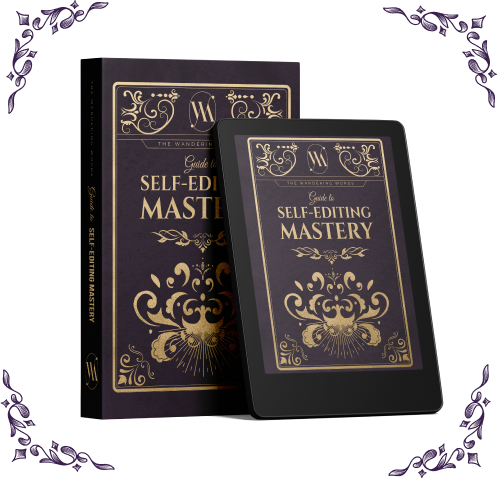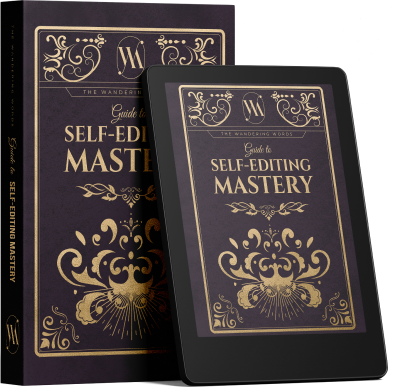Our Guide to Self-Editing Mastery has helped thousands of authors just like you:
- Pre-edit their books with ease
- Avoid the most common writing errors
- Quickly identify spelling & grammar mistakes
- Be more prepared for professional editing
Our Guide to Self-Editing Mastery has helped thousands of authors just like you:


The greatest compliment a writer can receive, in my opinion, is, “You made me cry.” Creating an evocative experience for the reader is a testament to what we artists strive to make. Writing, whether it is fiction or nonfiction, is meant to untangle our imaginative thoughts into memorable moments that will impact our readers for the rest of their lives.

How, though? How do we craft a work of art with jumbled words and jagged punctuation marks? How do we make delicate letters sing with the same beauty of a lone violin? Is there some secret out there that English teachers forgot to offer?
No, but there is a bit of psychology that we, as writers, tend to graze over—the difference between eliciting sympathy versus empathy.
When a reader understands how the character feels, they are experiencing sympathy. If I were to tell you, “I’m happy,” you would connect that to your understanding of what it means to be happy and accept this as fact. However, hearing that I’m happy doesn’t automatically make you feel happy, yourself—or make you feel anything, for that matter. This is because understanding someone is happy is not the same as knowing why someone is happy.
When a reader knows the reason the character feels a certain way, they can relate to why the character feels the way they do—which allows the reader to experience empathy. If I were to tell you, “Today is the best day of my life. I have won the trifecta. My son was born, I got the bid on the house my husband and I were hoping to buy, and I received a promotion!” Your response to this might be, “Congratulations, I’m happy for you! Let’s go celebrate!”
See? My happiness becomes your happiness.
If you show why rather than tell what a character feels, the same can occur with the relationship between your characters and your readers. Showing what a character feels means exploring the whole spectrum of thoughts, words, actions, and eventually habits that encompass emotions like anger, sadness, fear, happiness, and love.
To become better at evoking empathy from your reader, it is important you become observant of those around you, and start to channel those observations into your writing. Here are some questions to consider when you observe yourself and others to better understand how to evoke empathy from your reader:
These questions and more await an answer. So, observe yourself, those around you, characters on television, and characters you experience through writings outside of your own. Then journal your experiences so you get used to formulating them in your own words. Finally, once you have written your next masterpiece, invite the reader into the perspective of your character—let them experience all the ups and downs and all the emotional nuances life has to offer.
The five stages of grief are defined as: Denial, Anger, Bargaining, Depression, and Acceptance (DABDA). Write a passage (no more than 500 words) expressing a situation where your character experiences all five of these emotions through bodily sensations, thoughts, speech, and actions—without saying the name of the emotions you are trying to convey.
If you would like feedback on this and other exercises presented through the Wandering Words Media Blog, consider our one-on-one lessons, where we teach you not only how to write but how to craft art through the written word.

